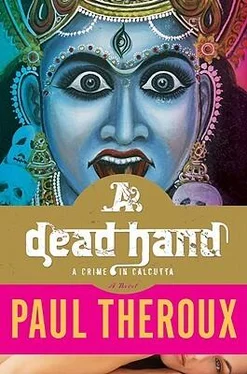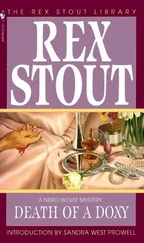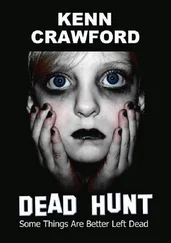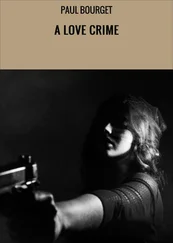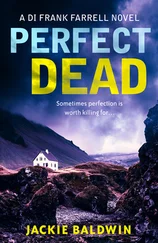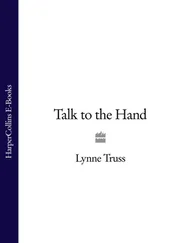I made an appreciative sound. She was a glow at the other end of the line. I could not clearly recall her face.
"I knew you would."
Another surprise: after that bewitchment she was all business. But she was full of surprises.
Feeling hot and damp from the long sleep, I took a shower, dressed, and hurried downstairs, eating a banana on the way.
"You shouldn't eat bananas," she said. "Not with your body type."
"What's my body type?"
" Pitta. Fire and water."
"What should I eat?"
"Figs." She was smiling. She assumed a dancer's posture. "Melons."
I heard the words as I stared at her body. And I was thinking how lucky I was to have this woman in my life, appearing in the lobby of my hotel on this sunny morning. She was dressed in a white sari, her shawl over her head instead of draped on her shoulder. She was arrayed like a Madonna, her face framed by the folds of her shawl; but even so, as a figure of holiness she had an aura of sensuality, something about the way she stood, then the slope and glide of her walk, her short swift steps, a way of moving her hands, her slender beckoning fingers. She touched me softly as I passed, and when I paused to savor the moment, I saw the curve of her hips, a rotation, slipping beneath her sari.
I did not ask her where we were going. I obeyed the rule.
"Madam?" Balraj was steering into the flow of honking cars.
"Kalighat."
As we moved slowly along Chowringhee, I glanced at my watch. It was not yet seven-thirty. That accounted for my drowsiness, and I had the slight hangover I often got when I worked late writing. But this feeling was welcome. I had actually written six pages. Yet in this dense traffic, crawling through the heat — and it would be stinking hot in a few hours — I realized she must have woken me at seven or a little before. I had been so eager to see her I hadn't minded the early hour.
"I know that name, Kalighat."
"One of the sacred places," she said. "We have something important to do there."
I loved her for saying "we." I was elated and reassured, because that's how I wanted her to think of me, as a friend, as an ally. More than that, as a partner.
"That's wonderful," I said, meaning everything. "What does bhoga mean?"
"Tantric term. Intense physical desire."
I had to turn away from her. I looked out the window. We passed Mehboob Panwallah and Eatery, the name assuming an irrelevant importance because I was glancing at the signboard as she spoke.
"What do you do when you're on your own?"
She asked big questions bluntly. I could have told her about Parvati and her poems, that empty flirtation. Or about Howard and his consular stories ( You could use that), the shuttling life I lived between jobs and cities and magazine pieces, the occasional radio item, my ill-fated TV travel show, my life of procrastination — the opposite of her life of action and commitment. But all that had stopped.
"Not much," I said. I wondered if I dared to tell her, because in telling her I was exposed; I'd have no more secrets. Yet she would know if I was lying, and she was so truthful herself it seemed unworthy to try to deceive her. I wanted her to trust me. I had wooed enough women in the past to know that only a woman's trust — and hope — led to sex.
Mrs. Unger was staring at me with her pale eyes, which were dark in a dark room, greenish in candlelight, gray in daylight like this; and I could see from the cast of her lips, the set of her jaw, the way her eyeteeth bulked against her lips, that she expected me to say more.
"I think of you when I'm on my own," I said. I had told women this many times without meaning it, but I meant it now, in a desperate way. "That's all I think about — how long it will be before I see you again. And I wonder what you're doing. Please don't laugh."
She touched my hand. "That's so tender."
"It's a little pathetic too."
She laughed, and held on.
"Because I think of myself as a big strong man," I said in a joking tone, but I meant what I said. I hardly recognized the man I'd become. I'd been planning to leave Calcutta around now, and here I was, in suspense at my hotel, making notes, avoiding friends, waiting to be summoned by Mrs. Unger, reduced to a needy boy.
"That means a lot to me," she said.
I hoped that she'd say that that was how she felt too when she was on her own, thinking of me. But I wanted her to be truthful. I could not phrase it as a question.
I said, "I'd be happy if you thought of me now and then."
"I think of you always." She was a little too prompt, as though observing a form of politeness. Yet she wasn't lying: I could feel her sincerity in her fingers, the way she held my hand. "I think we have a special bond."
A person's hand can be like a lie detector. In hers I felt no tremble of deception, only a but, something unspoken at the end of her statement.
As though answering a question I hadn't asked, she went on, "I need you to know everything."
"That's what I want."
"It'll take time," she said. "If you're patient" — she paused, looked out the window, the Calcutta Zoo on the right, the viceroy's mansion, another of Calcutta's decayed wedding cakes, now the National Library up ahead on the right behind a big white sign—"you'll see."
"I often think about that letter you sent me."
"My invitation."
"It was more than that. You wanted me to help you save Rajat from being implicated in that business. The corpse in his hotel room."
Her face became paler and less animated with thought. She said, "I still want you to help. Poor Rajat must not be compromised. It would destroy him."
If I'd had anything to report I would have told her then — that I'd visited the hotel twice, been rebuffed the second time, and discovered that the girl who'd helped me had been assaulted and fired; that I'd met her in the Park Street Cemetery and she'd given me a severed hand. But I had no positive news, only these inconclusive events.
"I want to do everything I can to protect him," she said. "I think the world of him."
We were on back streets, among villas and walled compounds, some of them very grand, others almost romantic in their decrepitude, covered in vines, set in large gardens. And street dwellers and hovels too, as in the most expensive of Calcutta's neighborhoods. Yet this one was substantial, with a thinner flow of traffic.
"This place looks familiar."
"Alipore."
"It resembles your neighborhood," I said. And I realized it was her neighborhood.
She didn't reply. But any of these villas could have been hers.
"I'm glad you think of me," I said, because I wanted her to say it again. I couldn't ask. It was often hard to obey her injunction against asking questions.
"Yes. But you're a strong, independent person, so you know how strange it is to need someone else."
I wanted to say I'm not strong anymore.
"Charlie sees it. I think he's a little jealous."
"He has his life," I said, because I couldn't say He has Rajat.
She looked out the window as though glimpsing an answer. "It'll do him good. I don't interfere."
"I thought Charlie worked for you."
"He helps with my foundation. But he attends to his own affairs."
That was typical of her confident ambiguity. His own affairs could have meant anything.
"I'm so busy with my charities I hardly have time for anything else. I mean, besides the foundation there's my school, my clinic, the refuge. Well, you know. Keeping up with the funding and the accounting is a full-time job. And there's so much more. This is Calcutta!"
The sidewalks we were passing, in spite of the elegant villas behind the high walls, were thronged with women and children. At this spot, as she finished speaking, women in red and yellow saris worked on a building site, carrying gravel out of a pit, emptying one basket at a time in a heap by the side of the road — construction workers, dressed as if for a folk festival.
Читать дальше
